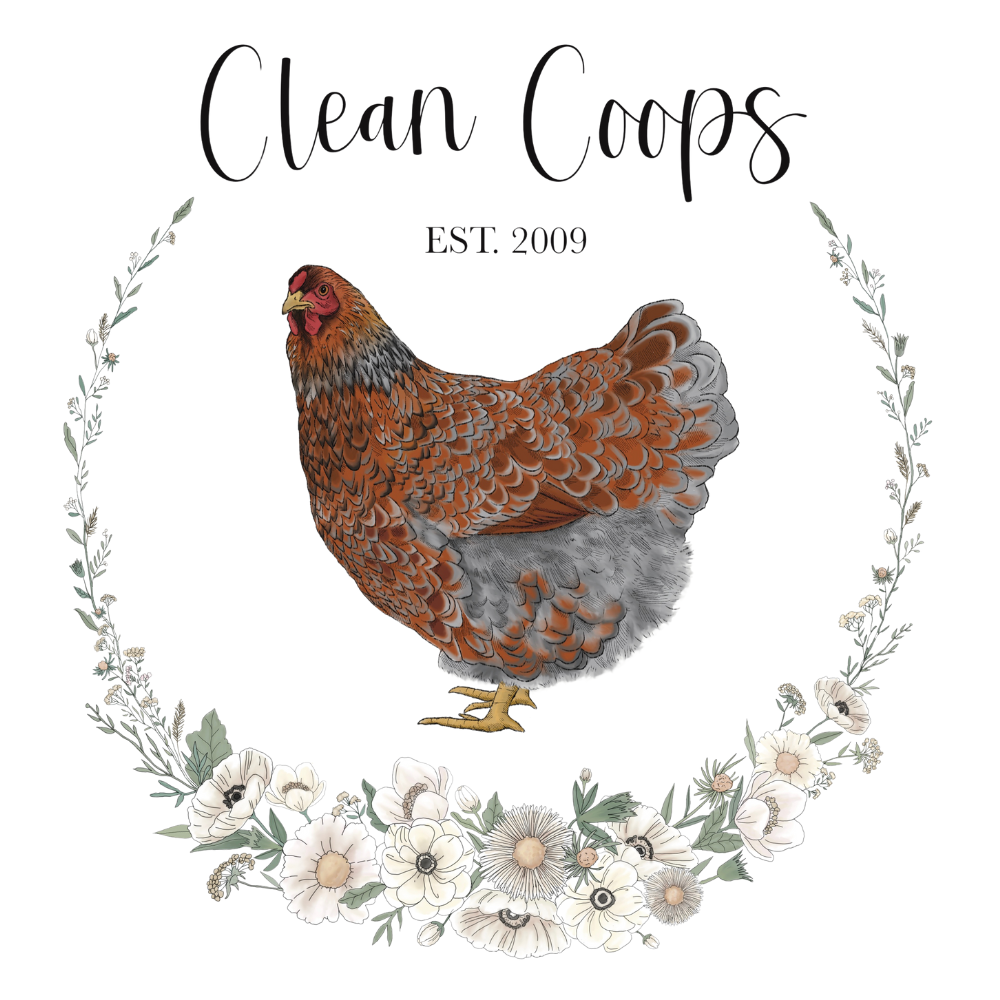All About Eggs
All you need to know about collecting, cleaning, and storing chicken eggs!
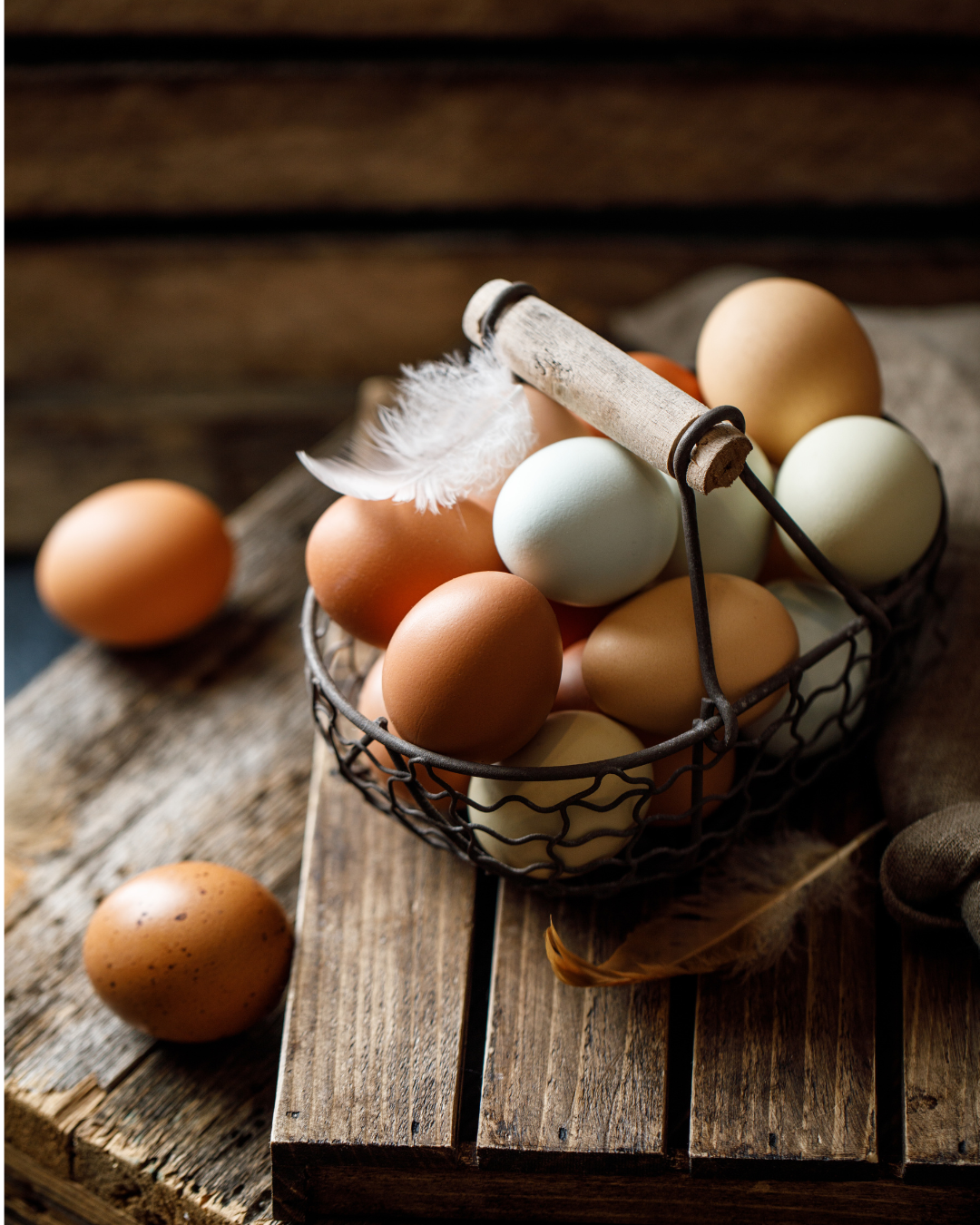
The first thing you need to do is make sure your hens have a nice clean area to lay their eggs. Chickens have natural instincts that tell them where to look for a nest. They like places that are dark, quiet and clean. Provide your hen's nest with a nice layer of pine or aspen excelsior. I like this better than straw or hay because it is more cozy for the hens and makes cleaning easier. If an egg happens to break, the shavings will absorb most of the egg and the nest will dry faster. Be sure to clean up any broken eggs immediately after finding them. This will not only keep laying area clean but also discourage egg eating hens.
If there is any manure that tracks into the nests, clean it out when you see it. Watch your hens for the first little while when they start laying eggs to get an idea of the time they lay. Eggs can sit in the nest boxes for hours without going bad. You only need to gather the eggs once toward the end of the day. Watch out for egg eaters though. If you notice any hens with yolk stuck anywhere to her beak or feet, you may need to gather eggs more often.
Do not allow your hens to sleep in the nest boxes. This will dirty up the nests overnight from the chicken droppings and then you have a messy area for the eggs in the morning. You might have to block the nests with something at night before they go in to roost. Make sure there is enough room for all your hens to roost. Overcrowding can cause some to sleep on the floor or in nests.
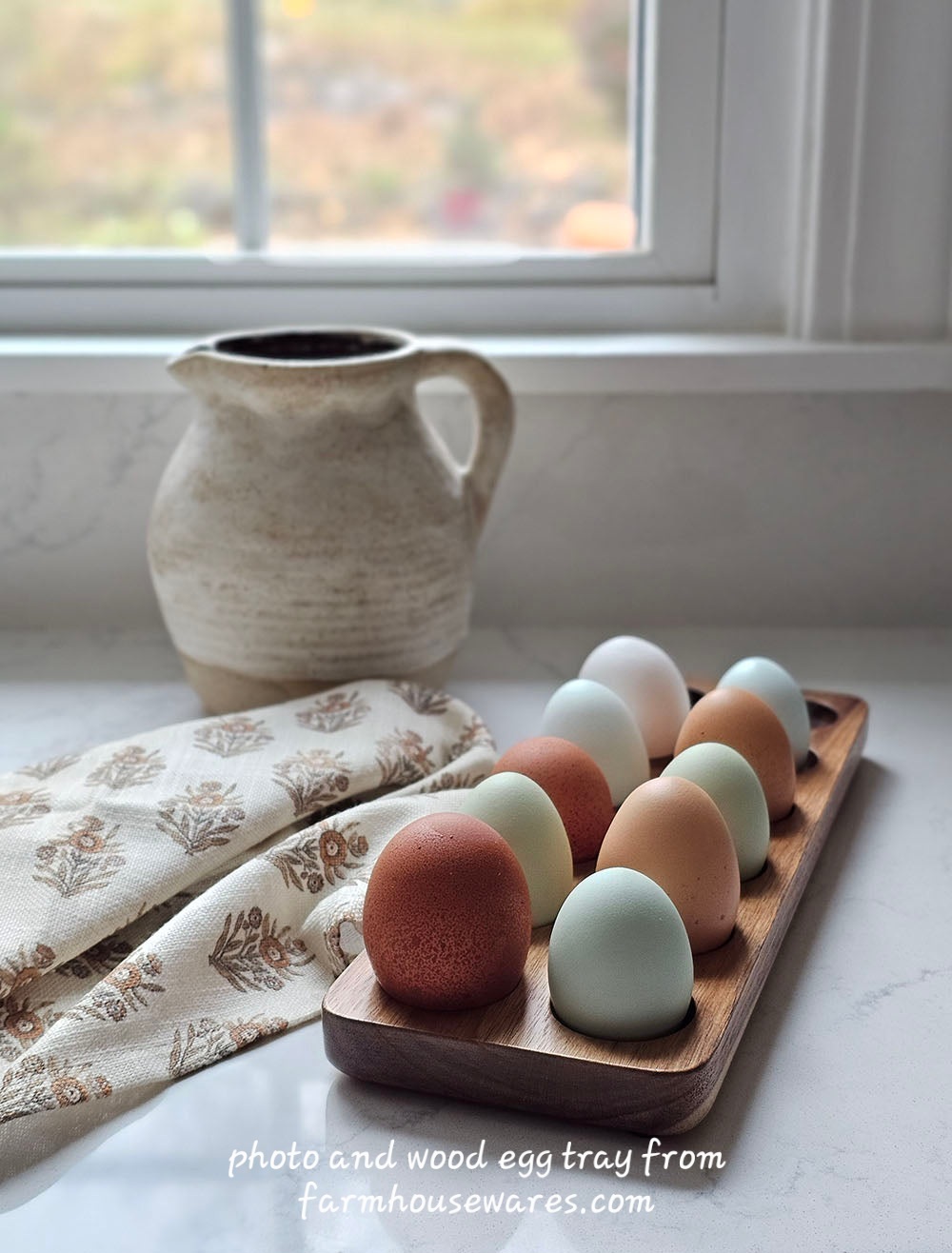
Cleaning Chicken Eggs
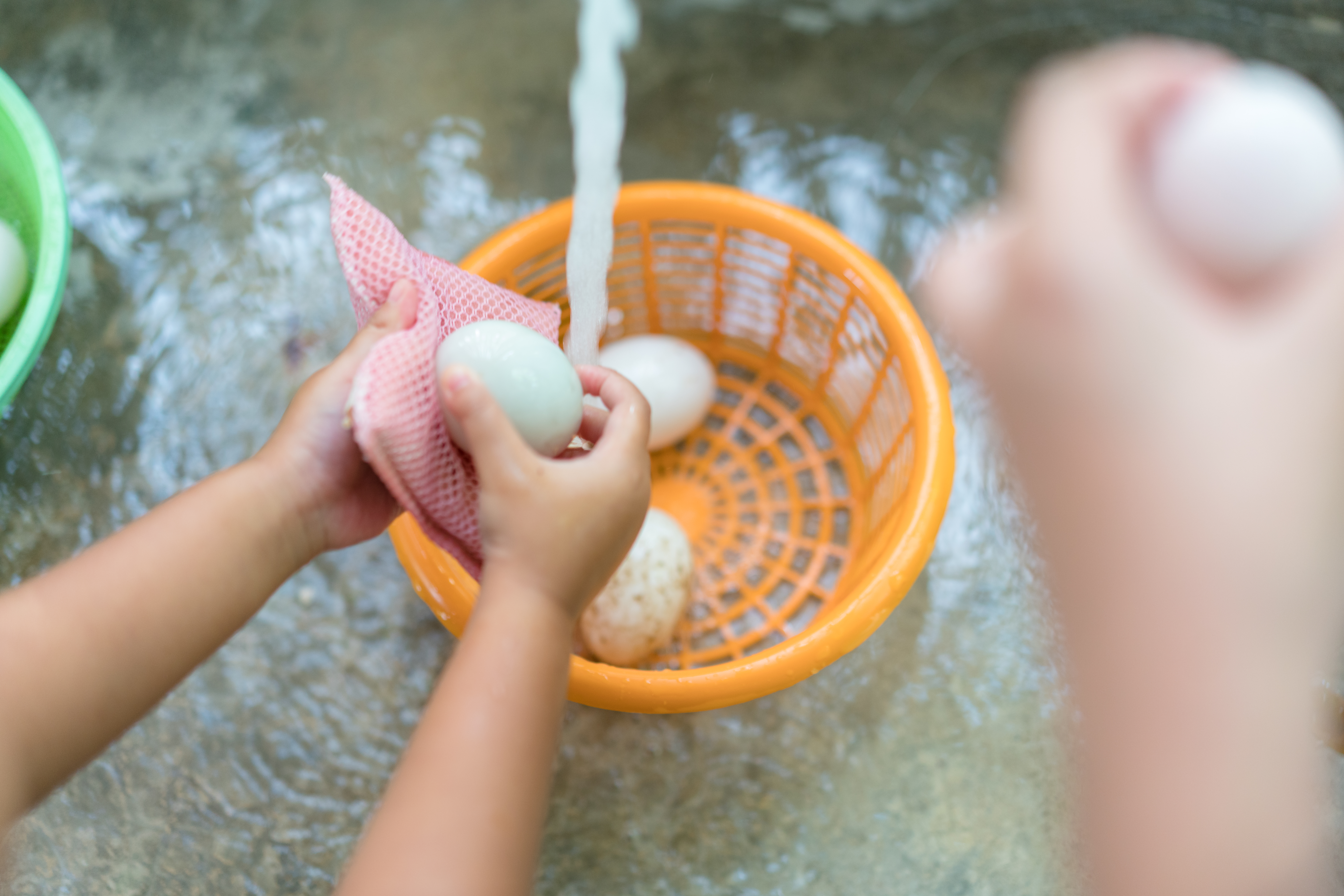
Eggs come out very clean (surprising to some) and it is important to know a few things about cleaning eggs to keep them fresher longer. First, all eggs have a natural antibacterial coating on them called the bloom. This coating protects the egg from bacteria getting to the inside. If possible, dry clean your eggs. Use a non-abrasive cleaning pad (without soap) to buff the egg. You only need to do this if you see something noticeable on the egg, like a small piece of dry manure or shavings that flakes off easily. Make sure you sanitize the cleaning pad occasionally. You want to clean the egg with a clean pad! I like to use the abrasive pads that do not scratch appliances. I want to buff the egg but not scratch it up to keep as much of the bloom on the egg as possible.
At Clean Coops, we believe in caring for your flock — and your fresh eggs — the right way. When it’s time to clean your eggs, always use warm running water between 100°F and 110°F, just a little warmer than the egg itself. It’s important not to soak or submerge eggs in standing water, because eggshells are porous and soaking can allow bacteria to be pulled inside. Instead, gently rinse each egg individually under warm running water, using a soft brush or cloth to remove any dirt if needed. After rinsing, dry the eggs immediately with a clean towel or place them on a clean drying rack. If you are selling your eggs, a quick dip in a food-safe sanitizer is optional, but never leave eggs sitting in water. Proper egg washing helps protect the natural freshness of the egg while keeping your family and customers safe. I do not wash my eggs unless they look like they need it. My personal preference is to keep the bloom on the egg as long as possible.
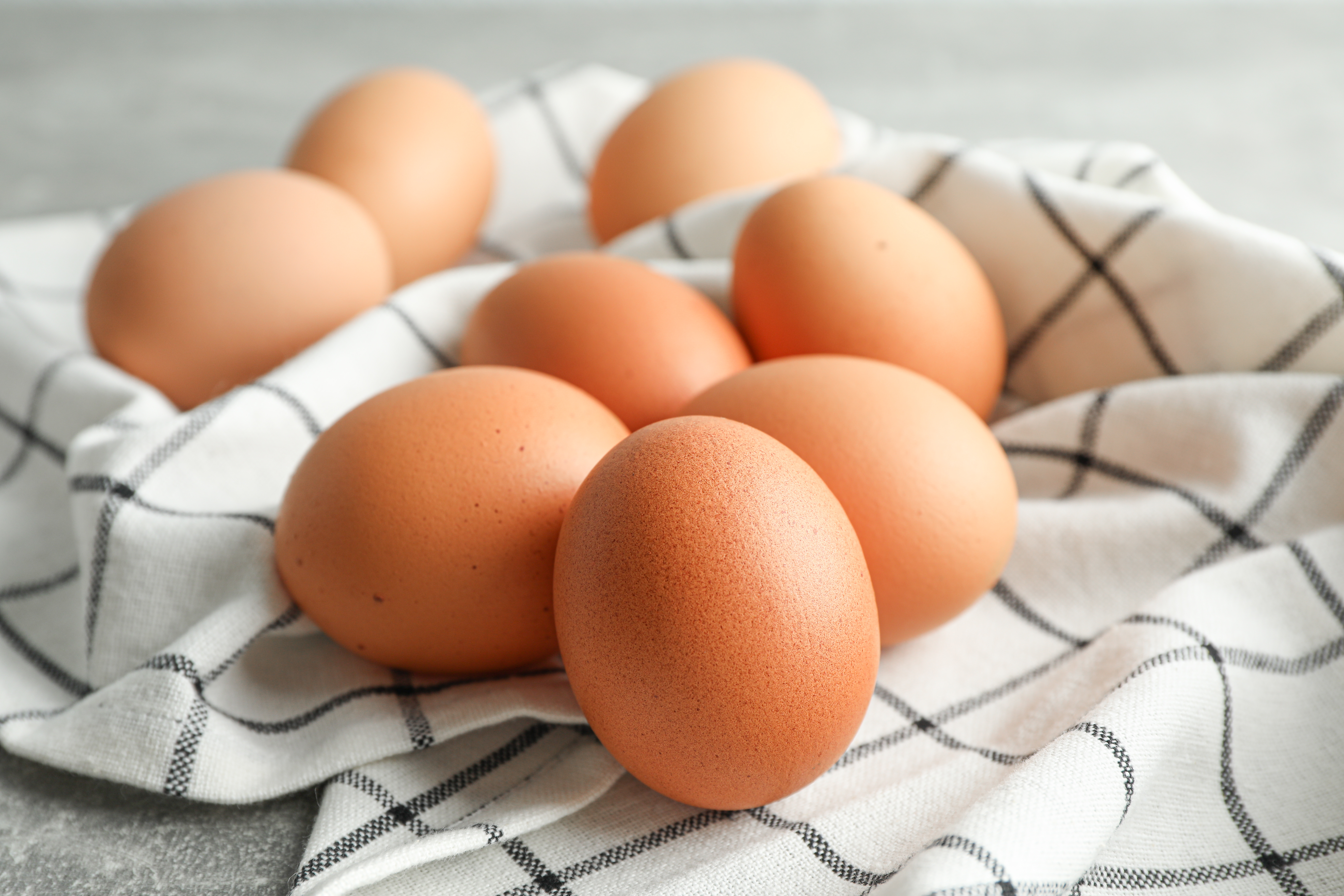
Egg Fun Facts
Want to know how free range chicken eggs compare to supermarket eggs?
Cholesterol
1/3 less!
Saturated Fat
1/4 less saturated fat!
Vitamin A
2/3 more!
Omega 3 Fatty Acids
Double the amount!
Vitamin E
Triple the amount!
Beta Carotene
7 times more!
Vitamin D
4-6 times more!
Storing Eggs
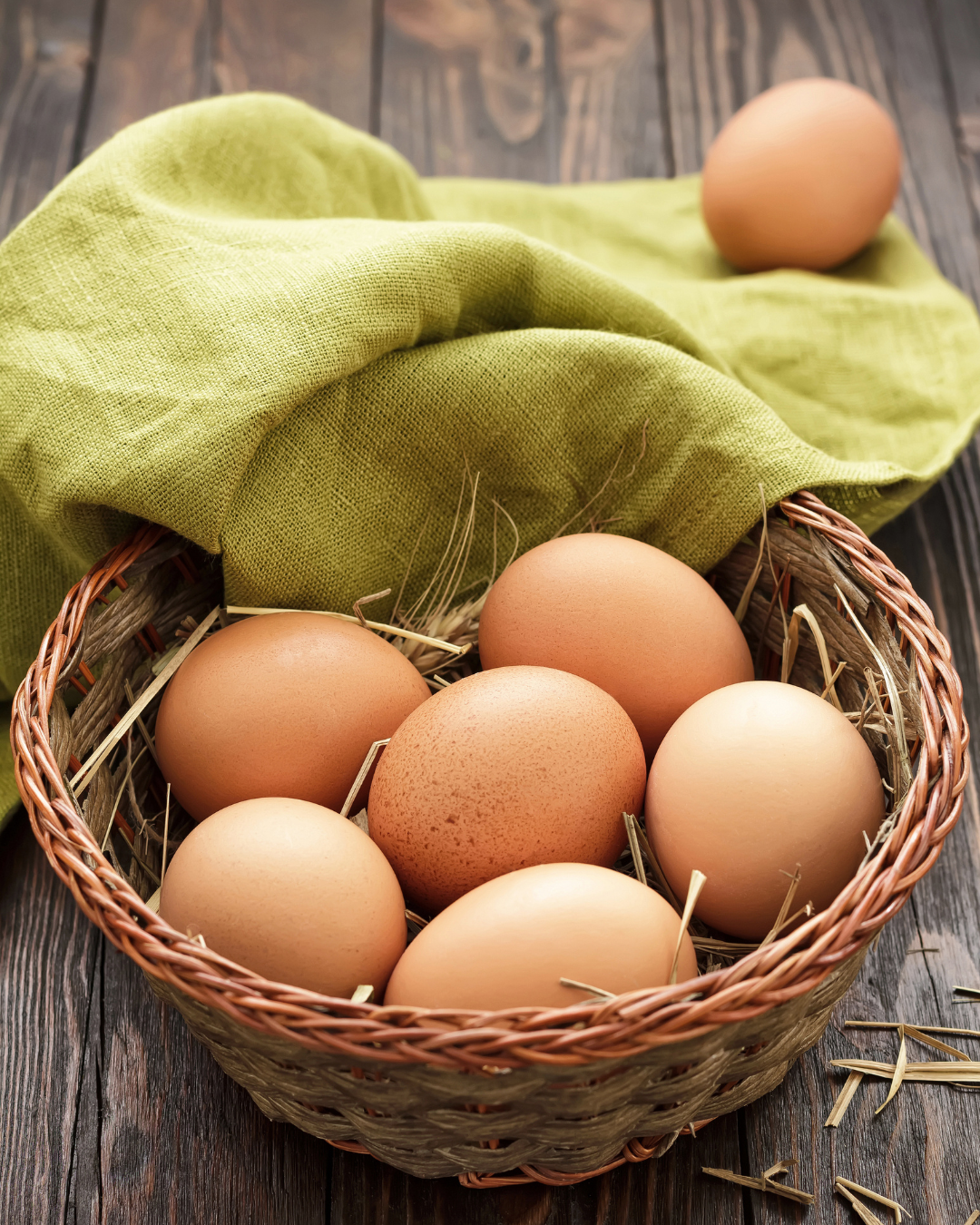
When you are done cleaning the eggs and they are dry, you can move them into an egg carton and place them in the refrigerator. From the day you gather the eggs, they will stay fresh for about 8-1/2 weeks. Farmers sometimes have eggs 30 days before they go to the market, when you buy the eggs the expiration is usually 30 after that...so eggs can stay fresh for a good couple months. The key to freshness is keeping the temperature consistently the same. To test an egg for freshness you can do an old trick with a glass of water. Gently place the egg in room temperature water at the bottom of the glass. If the egg stays on its side at the bottom of the glass, it is a good egg. If the egg floats up at all or floats on its nose, it is a bad egg. Floating means that gasses (air) has entered the inside of the egg and it has begun to break down. You can also use a light behind the egg to see if there is any air inside...this is called candling. Another way to tell if you have a good egg, is to look at the white part of the egg after you crack it open. The whites of a fresh egg is nice and perky, it has a thicker consistency. White parts of bad eggs are flat, spread out and runny.
It is said that one can preserve eggs for about 36 days if refrigeration is not available by coating the outside of the egg with vegetable oil, cottonseed oil, or coconut oil. I have not tried this method but have heard many success stories and methods of preserving eggs without refrigeration.

When you are done cleaning the eggs and they are dry, you can move them into an egg carton and place them in the refrigerator. From the day you gather the eggs, they will stay fresh for about 8-1/2 weeks. Farmers sometimes have eggs 30 days before they go to the market, when you buy the eggs the expiration is usually 30 after that...so eggs can stay fresh for a good couple months. The key to freshness is keeping the temperature consistently the same. To test an egg for freshness you can do an old trick with a glass of water. Gently place the egg in room temperature water at the bottom of the glass. If the egg stays on its side at the bottom of the glass, it is a good egg. If the egg floats up at all or floats on its nose, it is a bad egg. Floating means that gasses (air) has entered the inside of the egg and it has begun to break down. You can also use a light behind the egg to see if there is any air inside...this is called candling. Another way to tell if you have a good egg, is to look at the white part of the egg after you crack it open. The whites of a fresh egg is nice and perky, it has a thicker consistency. White parts of bad eggs are flat, spread out and runny.
It is said that one can preserve eggs for about 36 days if refrigeration is not available by coating the outside of the egg with vegetable oil, cottonseed oil, or coconut oil. I have not tried this method but have heard many success stories and methods of preserving eggs without refrigeration.
Follow Us
Company
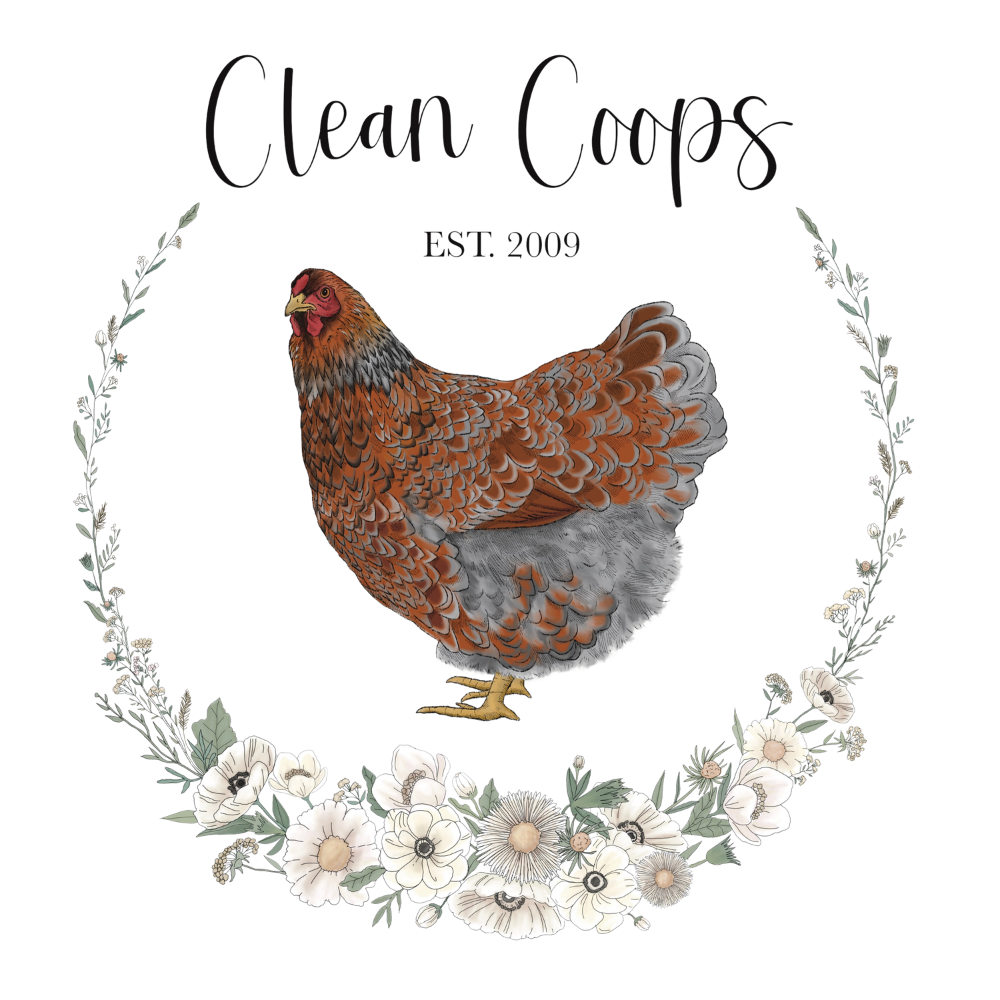
More
Legal
Copyright 2026. Clean Coops. All Rights Reserved.
